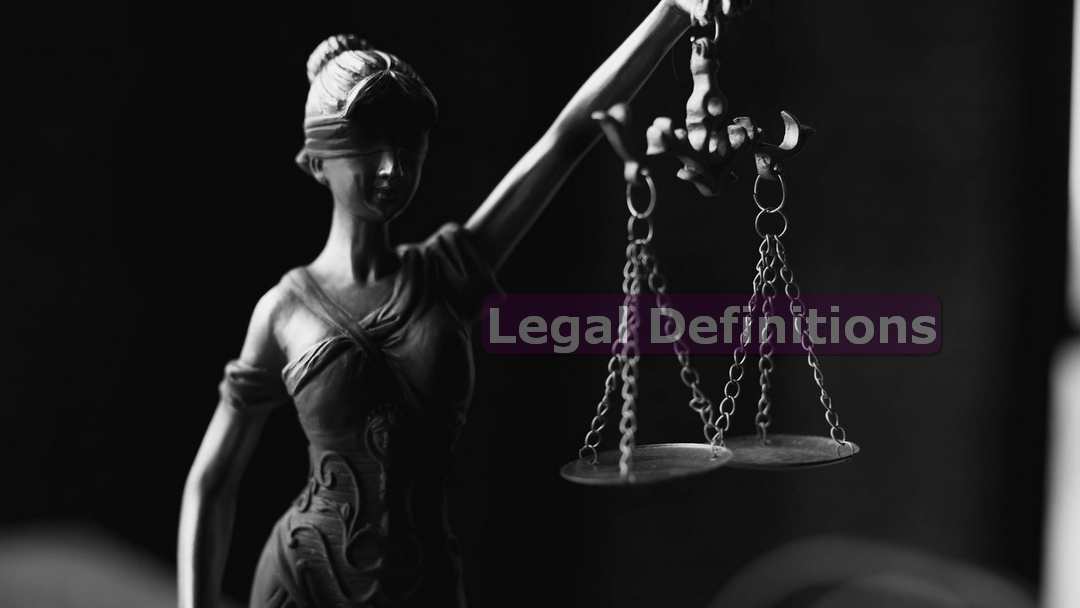No Results Found
The page you requested could not be found. Try refining your search, or use the navigation above to locate the post.

In legal contexts, recidivism refers to a person’s relapse into criminal behavior, often after having been previously convicted and penalized for similar or other crimes.
When someone re-offends, they are described as a “recidivist.” Recidivism is a critical metric for evaluating the effectiveness of the justice system, particularly in rehabilitation and deterrence efforts.
The rate of recidivism is often used to determine how often released individuals commit new crimes within a certain timeframe, such as within three or five years.
Recidivism can include a range of behaviors, from minor infractions to serious felonies, and it may be influenced by multiple factors. For instance, substance abuse, limited access to education, and lack of employment opportunities are often cited as contributing factors that increase the likelihood of recidivism. Conversely, interventions like vocational training, substance abuse programs, and stable housing have been associated with lower recidivism rates.
Recidivism data is essential for policymakers, who use it to evaluate the impact of sentencing practices, parole guidelines, and rehabilitation programs. A high recidivism rate might suggest that existing measures are insufficient to prevent re-offense, while a lower rate might indicate effective rehabilitation practices.
The legal system categorizes recidivism rates by different types of offenses. For example, studies show that property crime offenders may have higher rates of re-offense compared to violent crime offenders. This information helps tailor criminal justice reforms to address specific challenges posed by different types of crimes.
Here is a case example
Disclaimer: This article provides a general overview and does not substitute for legal advice. As with any law it can change or be modified and research should be done before you rely on any information provided on the internet. Although we make all attempts to link relevant laws these laws can often be gray and corrupted to fit a narrative. Anyone charged with any alleged crime should consult an attorney for specific legal guidance.
The page you requested could not be found. Try refining your search, or use the navigation above to locate the post.

In People v. James Thomas Mason, Jr., the Michigan Court of Appeals dealt with whether the district court could reasonably depart from the usual “no jail, no probation” presumption for a non-serious misdemeanor conviction, which in this case was driving with a suspended license (DWLS).
The district court sentenced Mason to a 93-day jail term, reasoning that his past offenses indicated a high risk of repeat offenses (recidivism), risk to public safety, and limited potential for rehabilitation.
Mason challenged the sentence, arguing it was harsher than necessary, given that DWLS is generally not considered a serious misdemeanor under Michigan law.
The district court justified its departure by pointing to Mason’s history of drunk driving and other recent charges, including domestic violence.
However, Mason argued that the sentencing was unfairly influenced by a local policy that often imposed jail or probation for similar cases, suggesting a lack of individualized consideration. In his appeal, Mason requested that if resentencing were ordered, a different judge should oversee it to avoid any perceived bias.
The Michigan Court of Appeals upheld the district court’s decision, finding no abuse of discretion.
The appellate court ruled that the sentence was justified given Mason’s history and that there was no clear evidence of a rigid local policy affecting the court’s sentencing choice. The court also stated that the district court adequately recorded its reasoning, supporting the sentence’s proportionality to the offense and the defendant’s background.
This case thus highlights the balance between standard sentencing guidelines and individualized sentencing based on a defendant’s criminal history.
For more detailed information, you can refer to the PDF here.
Disclaimer: This article provides a general overview and does not substitute for legal advice. As with any law it can change or be modified and research should be done before you rely on any information provided on the internet. Although we make all attempts to link relevant laws these laws can often be gray and corrupted to fit a narrative. Anyone charged with any alleged crime should consult an attorney for specific legal guidance.
The page you requested could not be found. Try refining your search, or use the navigation above to locate the post.

As we have seen … They can charge you and arrest you for whatever they want.
Yes, you can be arrested or fined for breaking Michigan’s drone laws. Under MCL 259.322, it is illegal to operate a drone in a way that interferes with law enforcement or emergency operations. Flying a drone over prisons, for example, is strictly prohibited. Violating these laws could lead to arrest, fines, or both.
Additionally, you could be fined for invading someone’s privacy with your drone.
MCL 750.539j makes it illegal to use a drone to photograph or record people in places where they have a reasonable expectation of privacy, like their home. The fine for this offense can vary, but violating privacy laws is a serious matter.
Yes, if you are caught using your drone in a prohibited or dangerous manner, law enforcement may confiscate it.
For example, if you’re flying near critical infrastructure or in restricted airspace, your drone may be seized as “evidence” of the violation.
If you have been accused or charged with a crime.
Say nothing to anyone. Talk to us first.
Our firm is experienced in both State and Federal courts defending clients.
CALL NOW
FAA Drone Registration Requirements:
Drones Weighing More than 0.55 Pounds (250 grams): If your drone weighs more than 0.55 pounds (250 grams) and less than 55 pounds (25 kg), you must register it with the FAA before flying it outdoors. This applies whether you are flying for recreational or commercial purposes.
Drones Used for Commercial Purposes: If you’re flying your drone for commercial reasons, even if it weighs less than 0.55 pounds, it must still be registered under the FAA’s Part 107 regulations. Additionally, as a commercial drone operator, you will need a Remote Pilot Certificate.
Drones Weighing Over 55 Pounds: If your drone weighs more than 55 pounds, additional FAA regulations apply, and registration is mandatory.
If you’re flying a drone for commercial purposes, you must have an FAA Part 107 Remote Pilot Certificate. To get this, you’ll need to pass a knowledge test administered by the FAA.
If you’re flying for recreational purposes, you don’t need a license, but you must follow FAA safety guidelines, including flying below 400 feet and keeping the drone within your line of sight.
Yes, Federal Aviation Administration (FAA) laws take precedence over state or local drone regulations.
This means that federal rules about airspace, drone registration, and licensing apply across the country, including Michigan. However, local laws that don’t conflict with FAA rules—like those concerning privacy or property—can still apply.
In Michigan, there are no separate state registration requirements for drones beyond the FAA’s regulations. However, local ordinances may still apply, particularly regarding where you can fly the drone, so it’s important to check local rules.
The above question is really what triggered this article and the picture.
If you build a drone that you can ride in, you would most likely need a pilot’s license to operate it legally, because it would be considered an aircraft under Federal Aviation Administration (FAA) regulations.
The FAA categorizes any manned or unmanned aerial vehicle capable of carrying passengers as an aircraft, and specific rules apply depending on its size, weight, and purpose.
FAA Certification: If the drone is capable of carrying people, it falls under stricter FAA regulations than standard hobbyist or commercial drones. You would likely need to obtain a Private Pilot’s License (PPL) or another applicable certification, depending on the size and capabilities of the aircraft.
Aircraft Certification: Your personal drone would also likely need to meet the FAA’s certification standards for safety. This would involve testing, inspections, and possibly approvals for experimental aircraft if it is custom-built.
Operating Rules: Manned drones would have to comply with the same operating rules as other aircraft, such as airspace restrictions, altitude limits, and safety regulations. You would also need to follow air traffic control instructions when flying in controlled airspace.
Michigan Laws: In addition to FAA rules, you must comply with Michigan’s laws about aviation, such as MCL 259.80, which covers general aviation regulations in the state. These laws include provisions for safe operation, interference with other aircraft, and operating near public spaces.
Building and flying a drone that you can ride in is a serious undertaking that involves federal and state regulations. You would almost certainly need to be a licensed pilot and have your drone certified for safety by the FAA before legally flying it. Make sure to consult with aviation experts or the FAA for guidance on licensing and compliance.
Better call a fighting lawyer and prepare to pay for it. Could be more cost effective for your future and cheaper than sitting in jail. You don’t make money there. They do.
Disclaimer: This article provides a general overview and does not substitute for legal advice. As with any law it can change or be modified and research should be done before you rely on any information provided on the internet. Although we make all attempts to link relevant laws these laws can often be gray and corrupted to fit a narrative. Anyone charged with any alleged crime should consult an attorney for specific legal guidance.
DRONE NEWS – DEC 2024
Jersey cops launched into the night sky with catapults to throw dreamcatchers at the unknown drones to entangle their props and bring em down! – Might as well.
—————————————
Drone updates: ‘Something’s going on,’ New Jersey mayor says
——————————
According to the Department of Defense News 12/14/24
https://www.defense.gov/News/News-Stories/Article/Article/4002374/joint-staff-addresses-drones-over-new-jersey-military-installations/
Right now, the FBI, DHS, FAA and DOD have been unable to determine who is responsible for flying the drones, and there’s no indication that there are adversary nations involved.
“To date, we have no intelligence or observations that would indicate that they were aligned with a foreign actor or that they had malicious intent,” the spokesperson said. “But … we don’t know. We have not been able to locate or identify the operators or the points of origin.”
————————————
Darrrrrr – Watch this and try to believe it.
The page you requested could not be found. Try refining your search, or use the navigation above to locate the post.

If you own or are a member of an LLC.
You have a deadline of January 1, 2025
The new Beneficial Ownership Reporting requirements for LLCs and other corporations come under the Corporate Transparency Act (CTA) and will go into effect on January 1, 2024.
The Corporate Transparency Act (CTA) of 2021 was enacted to combat financial crimes such as money laundering, tax evasion, and terrorist financing. It requires corporations, limited liability companies (LLCs), and similar entities to disclose their beneficial owners—the individuals who own or control these entities—to the Financial Crimes Enforcement Network (FinCEN).
Under the CTA, businesses must provide information such as names, addresses, and identification numbers of beneficial owners.
The goal is to prevent criminals and politicians from using anonymous entities to conceal their identities. Criminals that use entities using their real name still have to register.
Most small and privately held companies are subject to this law, although there are exemptions for heavily regulated entities.
The law became effective in 2021, with reporting requirements started in 2024.
Failure to comply can result in fines and even imprisonment.
Penalties: Failure to report can lead to penalties of $500 per day for non-compliance, and could even result in fines up to $10,000 or imprisonment for up to two years.
Legal Counsel and Your Rights
When facing legal challenges, particularly in criminal cases, it is advisable to seek legal counsel immediately.
An experienced attorney can provide guidance on how to navigate interactions with law enforcement while safeguarding your constitutional rights.
Since 1993 our expert legal defense in navigating criminal law matters and protecting your constitutional rights are what we eat for breakfast everyday.
Contact Komorn Law PLLC if you’re ready to fight and win.
Research us and then call us.
Other Articles
Michigan House Bill 5451 of 2024: A Step Toward "Safer Communities"Michigan House Bill 5451, introduced by Representative Sharon MacDonell in February 2024, aims to enhance firearm safety in homes with children. The bill mandates that the Department of Health and...
Step by StepMichigan House Bill 5450 of 2024 is a bill that was introduced by Representative Sharon MacDonell on February 14, 2024. The bill was referred to the House Committee on Education and was reported with a recommendation with a substitute on May 14, 2024. The...
You work hard. Now get ready to work harder to prepare to give more.President Biden's administration has proposed the reclassification of marijuana from a Schedule I controlled substance to a Schedule III drug, which recognizes its medical benefits. This significant...
You work hard. Now get ready to work harder to prepare to give more.In Michigan, police can take your dashcam footage in specific situations, primarily when they believe it could serve as evidence in a criminal investigation. Michigan law permits officers to seize...

Compounding charges refer to the illegal act of accepting or agreeing to accept a benefit in exchange for not prosecuting a crime. In Michigan, this is considered a serious offense, and the law specifically prohibits it under Michigan Laws.
Compounding occurs when a person involved in or aware of a crime chooses not to report it or prosecute it in exchange for something valuable. Essentially, it’s a way of “settling” the matter privately instead of going through the legal system, often through money, services, or other forms of compensation.
According to MCL 750.122, it is illegal for someone to:
This law applies to both the person who might report the crime (such as the victim) and the person who offers the benefit (such as the offender). The law makes it clear that the proper way to handle any crime is through the court system, not private arrangements.
The penalties for compounding can vary based on the severity of the underlying crime. Under MCL 750.122(7), if the crime being “settled” is a felony, then compounding the charge is also treated as a felony. If the crime is a misdemeanor, compounding becomes a misdemeanor. This ensures that compounding is not an easy way out of legal consequences.
The reason compounding charges are treated so seriously is to ensure justice. When someone allows a crime to be hidden in exchange for personal gain, it undermines the justice system and can allow criminals to avoid punishment.
In Michigan, the law against compounding charges is clear and strict. It is never legal to accept or offer benefits in exchange for not prosecuting or reporting a crime. The courts are the proper avenue for handling all criminal matters.
For more details, you can view the specific law on the Michigan Legislature website (MCL) Section 750.122.
In Michigan, there are no exceptions that allow for compounding charges under MCL 750.122.
The law is strict in prohibiting any agreement to accept compensation in exchange for not reporting or prosecuting a crime.
This means that regardless of the circumstances, a person cannot legally accept money, services, or other benefits to refrain from involving the legal system in a crime.
Unless you are rich and famous or a politician.
However, while MCL 750.122 prohibits private settlements or agreements to avoid prosecution, there are legal alternatives within the justice system itself, such as plea bargains and restitution agreements.
These are formal processes, overseen by courts or prosecutors, where a defendant may agree to plead guilty to a lesser charge or make amends to the victim. Importantly, these arrangements are part of the legal system and are monitored to ensure fairness and justice.
“The best we can do is an educated guess.”
Note: This article provides a general overview and does not substitute for legal advice. Anyone charged with an offense should consult an attorney for specific legal guidance. Don’t forget the internet is full of “Misinformation”
The page you requested could not be found. Try refining your search, or use the navigation above to locate the post.